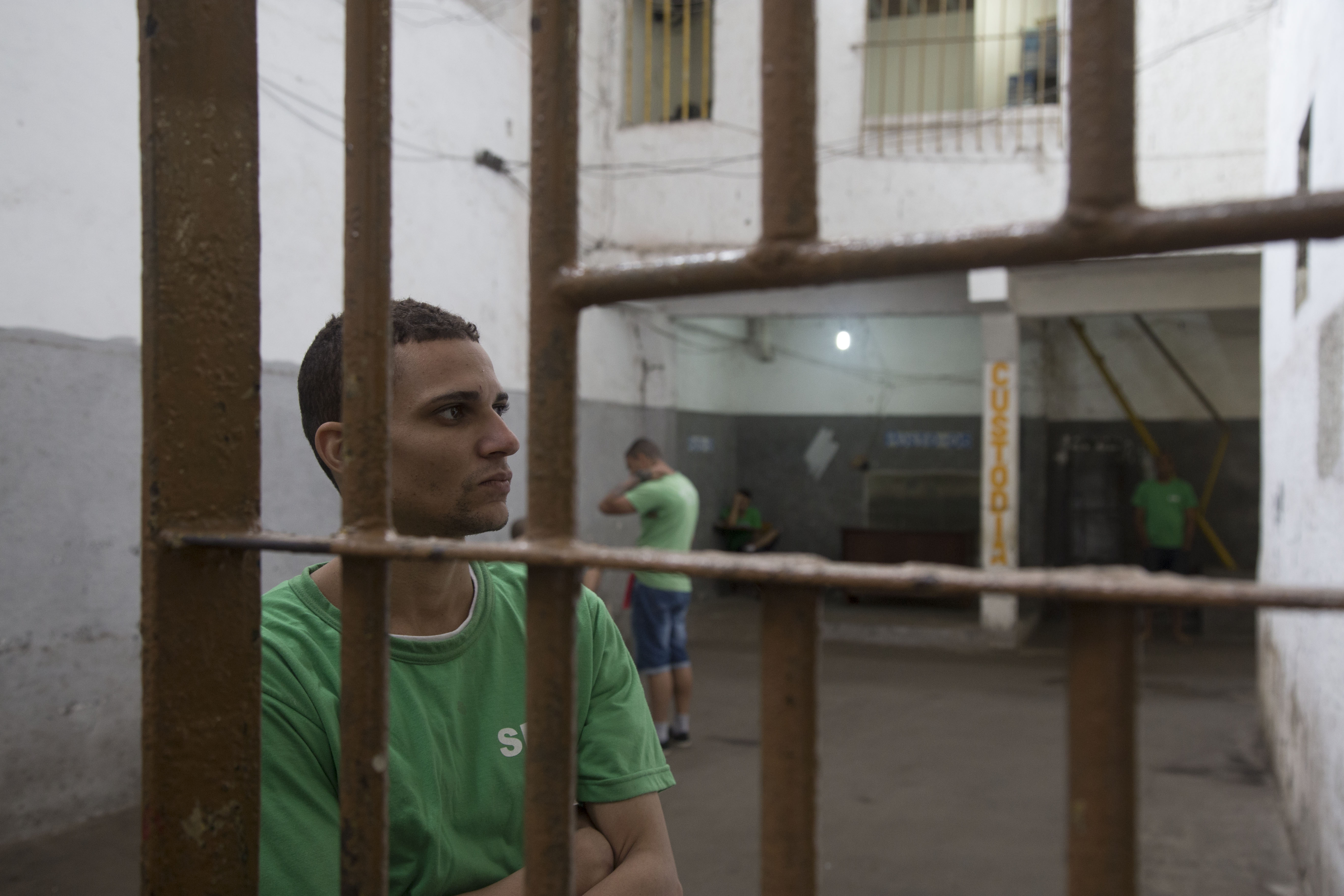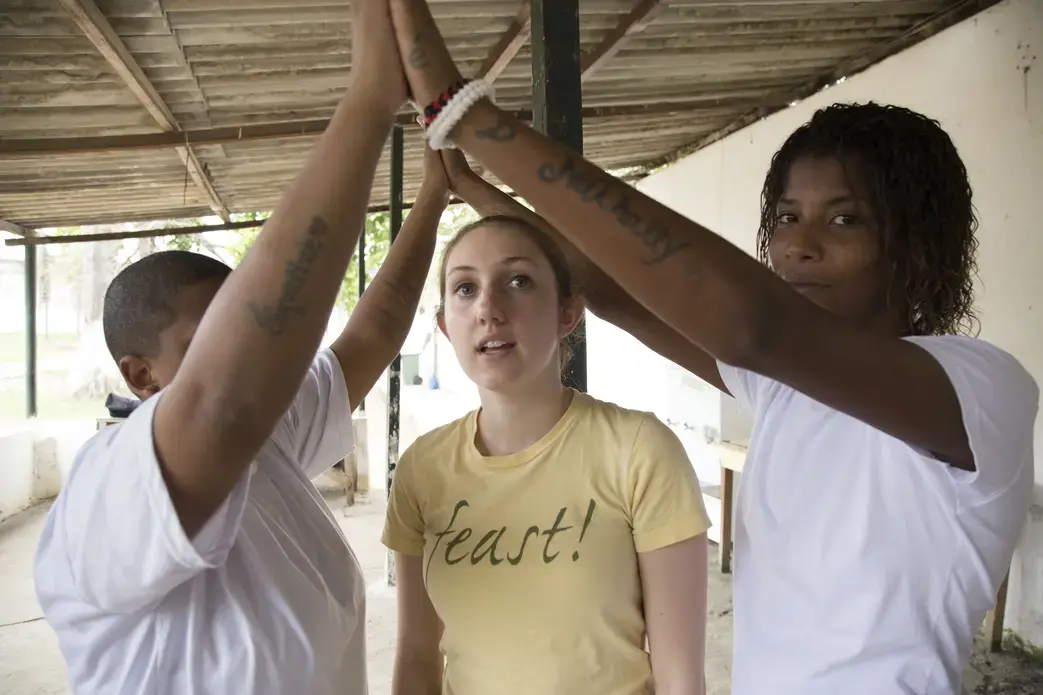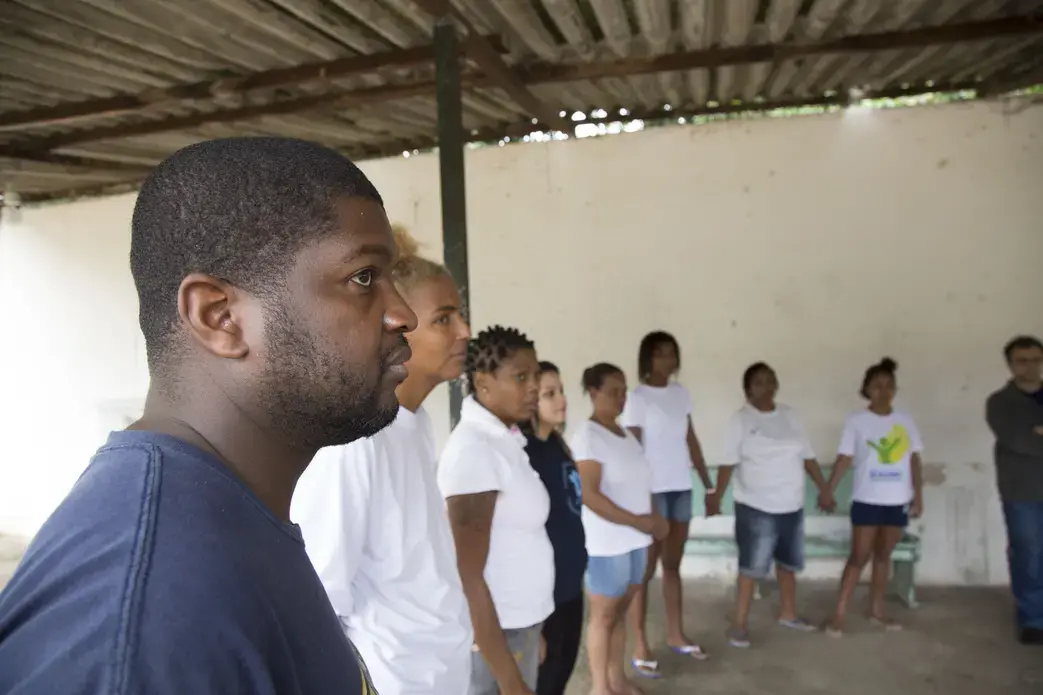Ten mothers sat in a circle of plastic lawn chairs, 10 babies on their laps. Mothers passed their babies around, each greeting the next with a dimpled smile. One mother, bags ridden under her eyes, handed me her four-month-old daughter. She spoke softly, but still I understood that she needed me to watch her baby while she showered. So we sat, babies in lap, and played games—giving both mother and child a release from the day-to-day at Bangu.
Little boys and girls, anywhere from a few days up to six months old, could be found in the arms of their mothers, guards, or medical staff. But this was no average daycare facility—this was the Bangu Complex of Penitentiaries, located in Rio de Janeiro and designed for mothers and babies up to six months of age. If a mother is charged or incarcerated during any point in her pregnancy, a portion of her time is served in Bangu, where she can be with her child during his or her first half year.
Mothers and babies are kept together for the benefits of breastfeeding and the importance of nurturing for six months. Originally, mothers could keep their children in this facility for their first two years of life, but due to an overwhelming need for facilities like Bangu, mothers are now only allowed six months. The system has thrived for years in countries around the world, allowing mothers and their children to create a bond, regardless of sentence time. But this system of maintained connections has only been more recently adopted in the United States, which currently has less than 10 prison nurseries across the country.
Beyond the benefits of health and human connection, this facility is quite different from the one located directly next door. With televisions playing educational shows, play areas, easier access to medication and assistance, as well as a kitchen where inmates are allowed to prepare their own food, Bangu outshines other Rio prisons by a landslide, even if only for the benefit of the babies.
While the Bangu Complex has been adopted as a model for women's prisons around the world, many say that the system creates bonds that are unrealistic to keep. There are claims that this system can only hurt children and mothers' psychological health, but the women inside the complex think differently. One mother said this of her daughter, "Juliana is my light, Juliana is my love. We make each other whole." Her daughter was four months old and would soon go to her grandmother's home.
Nursery complexes within prisons are still highly debated in the U.S., as the cost of maintaining a child can range anywhere from $24,000 to $34,000+ a year. At the same time justice officials continue to study the costs and benefits of children spending their early childhood behind bars.











